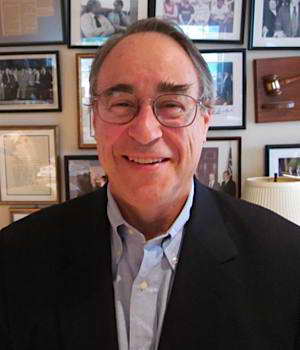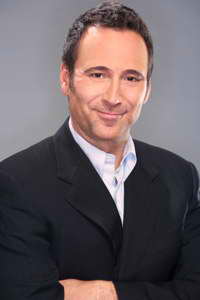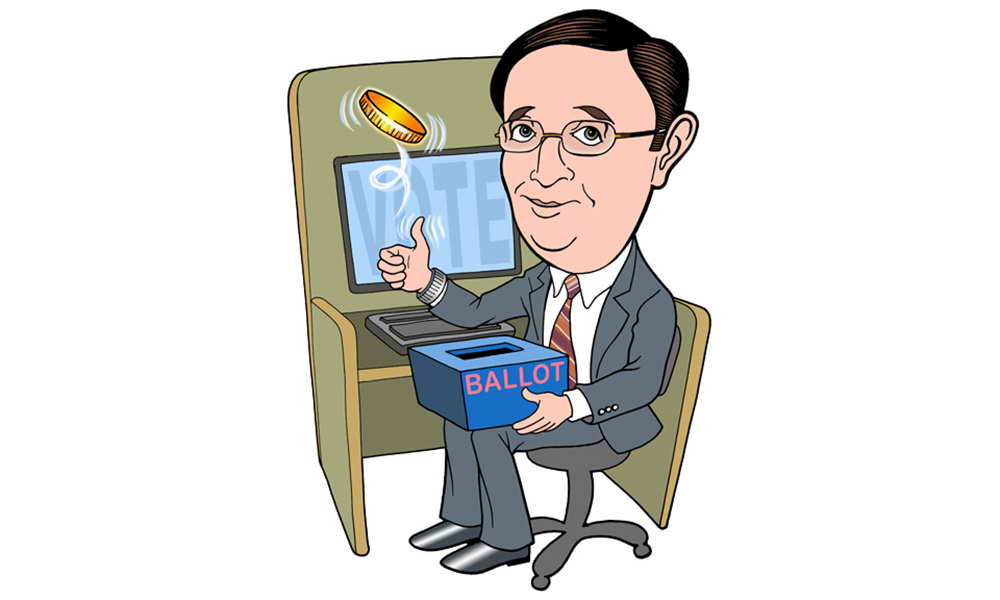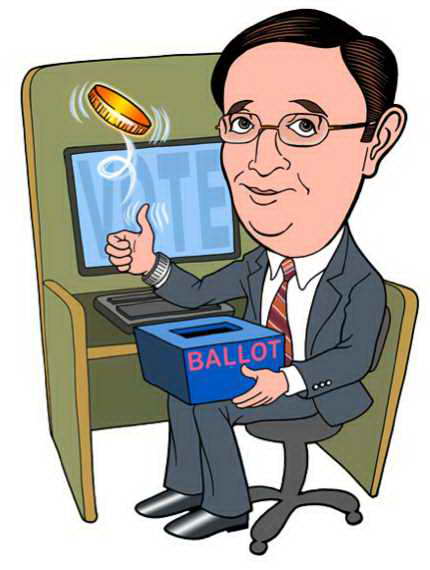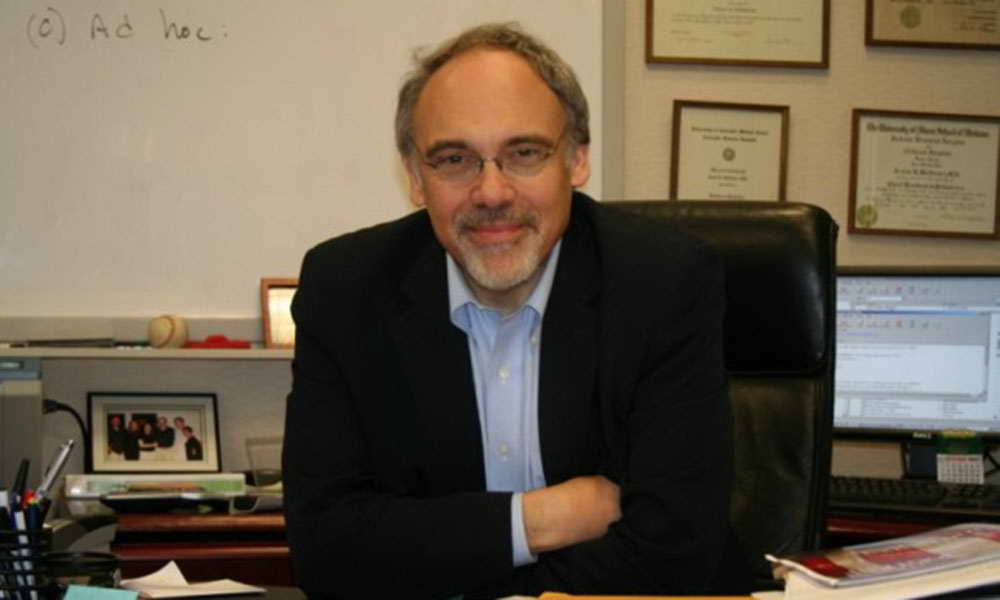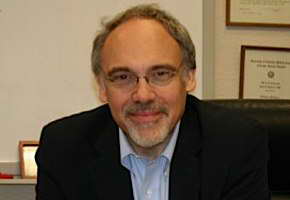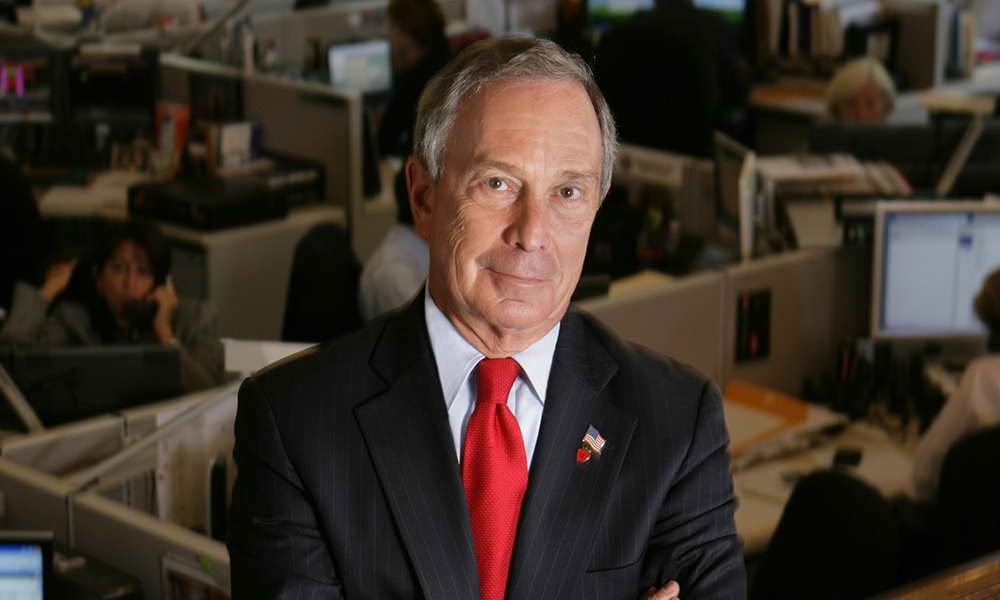Will a record number of incumbents go down in defeat in this November’s midterm elections? Will Republicans regain control of the Senate? What impact will the Tea Party have on the election? Will its candidates who won primary victories over Republicans be able defeat Democrats in the general election? Is President Obama in trouble? Veteran news correspondent Bonnie Angelo discusses the upcoming election with the Marist Poll’s John Sparks.
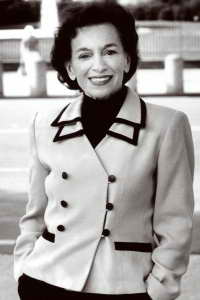
Bonnie Angelo, author of “First Families: The Impact of the White House on Their Lives” and “First Mothers: The Women Who Shaped the Presidents” (courtesy HarperCollins).
John Sparks
Bonnie, the latest New York Times poll tells us there is a widespread dissatisfaction with President Obama and Congress. We’re on the eve of the midterm elections, and typically I think of those as a time when the party out of power makes gains against the party in power. Many times I think of it as a referendum on the President if his party has the majority in Congress. But based on the primaries that have led up to this November, it doesn’t seem that simple as it was in years past. What do you think is going on?
Bonnie Angelo
Well, I think there’s a general sourness that sort of permeates this country right now. Don’t know exactly why. Things are not going badly, but there is a tendency, I think, to just be negative without even knowing why, and I think that’s what they… If they were opposed by people, then you’d get a more accurate fix on how the voters felt about it. But, I think this is just a way of saying, “Oh, we don’t like what you’re doing,” and that goes for anybody. I mean there’s neither side that’s getting pluses.
John Sparks
Yes, I was going to say that it seems to indicate that folks want the current crop of representatives thrown out whether they’re a Democrat or a Republican.
Bonnie Angelo
That’s right. That’s right.
John Sparks
Do you think that we’ll see a record number of incumbents actually losing their seats?
Bonnie Angelo
We’ve got quite a little bit of time to deal with, well some time, time enough, a little bit, for things to gel. I do believe that some people who grumble, when it comes close to just really going in the booth, may be saying, “But this fellow or this woman is better than the other one.” And so… but we may have a low turnout.
John Sparks
You know these Tea Party candidates who have prevailed in some of the Republican primaries this year, do you think that their victories reflect a disenchantment with President Obama and the Democrats or more of a disenchantment with the Republican Party and its candidates?
Bonnie Angelo
I have a feeling that it’s reflecting, as you’re saying, disenchantment with the whole swath of politics. There’s something that’s –maybe people see it up close too much now, because politics is –when you see too much of it, it can kind of turn you sour on it, and that may be part of it. They’ve had too much of it.
John Sparks
Well, you think President Obama is in trouble?
Bonnie Angelo
No. I don’t. I think there’s nobody… You can… It’s easy to knock somebody when there’s not anybody else on the scene. If there was somebody else really catching on, then you might think. But on the other hand, this is just a halfway mark. He’s got… He would have time to do many things between now and the real election.
John Sparks
Do you think…
Bonnie Angelo
But, where’s the face that’s really coming in to overpower him? That’s what’s hard to find.
John Sparks
Do you think that the Republicans have any chance at all of regaining the Senate in November?
Bonnie Angelo
That will be a hard one for them because there’s quite a great discrepancy in the numbers now, much more than in some times. I think a lot of it really depends on how they conduct their campaigns. I don’t believe that really negative campaigning goes over so well in this country now. Perhaps, I’m saying that because I don’t like negative campaigning. I think you ought to be excited for somebody, if possible, or, at least, choose one over the other for what he or she stands for. I feel that the negative campaigning doesn’t help anybody.
John Sparks
So what do you think of the Tea Party? Is it another third party like we’ve seen over the years, or do you think it stands a chance of changing our two-party structure?
Bonnie Angelo
You know, I think the Tea Party is a fascinating phenomenon. We’ve had, as you said, over the years, groups that come in and have an impact on the scene, but this one — this group is enormous, and it seems to be catching hold in all parts of the country, not just in say the South or the Farm Belt or whatever. It seems to be reaching out in a way that their issues are what’s bothering the American people. Now whether they can do anything about those issues, I’m not sure. I feel that they by and large have too negative an approach to politics. I think politics are best served by good people getting into the game and trying to say what they want to do rather than just attacking their opposition.
John Sparks
There’s quite a difference between a primary election and a general election. We’ve seen, I believe, in eight races since last spring where a Tea Party nominee has prevailed in a Republican primary, but what sort of chance do you give these Tea Party nominees against Democrats in November?
Bonnie Angelo
Not much. I just… I think that they’re — they are too negative in their approach to politics to be –to cut much into a more positive kind of outlook that’s defined on the Democratic side. It might not be any better than the others, but I think they tend to be more activist, more positive. Of course, we’ve got activist negatives as well. It’s… This is going to be a very interesting one. We haven’t had a phenomenon like this in quite a long time, so it’s not just a passing — it seems to be not just a passing fancy. That… when they get closer to the voting, maybe some of these others who have been grumbling will come back to their native home either with the mainstream Republicans or with the — with their Democrats of whichever stripe they like. I believe that will be the case. But if not, we’re really seeing something deeply different and, I think, quite divisive in this country.
John Sparks
I know you’ve heard like I have about that 11th Commandment that Republicans used to talk about, and that was that they would not talk ill of another Republican during a primary campaign. Well, that’s out the window now, and I’m just wondering: Do Republicans need to bury the hatchet and unify now in order to be a viable force in November against Democrats? And will they? Will the… Will these Tea Party folks get the backing of the moderate Republicans?
Bonnie Angelo
Well, or would the Tea Party folks give their backing to moderate Republicans? I don’t think you have to put them in the leading position where it’s almost an exception that they’re going to be the major factor in this election. Although, it’s hard to tell in this country what’s rippling just below the surface. The people that we hear and know are out there with a message and a commitment, but there’s an awful lot of Americans who just quietly sit back, many of which of whom will not vote in an off-year election, you know. You almost need a president at the top of the ticket.
John Sparks
You know, I think it’s interesting that President Obama based his presidential campaign on change and now it’s the Tea Party members within the ranks of Republicans who are calling for change within the ranks of their own party. Has change become everyone’s mantra these days?
Bonnie Angelo
Yes. I think Americans like the idea of change I think, and so it’s a word that’s resonating now. I think this — the Tea Party runs the risk of being seen as too much change or either perhaps too – I don’t want to say vicious, but maybe too harsh in its change. I think we’re not a country right now that likes to be at razors’ edge with the — on issues.
John Sparks
Were you surprised at the outcome of some of the primaries? I’m thinking like Mike Castle losing to Christine O’Donnell in Delaware and Rick Lazio losing to Carl Paladino in New York. Did that surprise you?
Bonnie Angelo
Yes. Yes. Both of them surprised me. I thought because I haven’t really been out to watch these competitors on the stump, which is, you know, you get a whole different feeling than when you just read about people, but I think that there might be a sleeper group of voters out across the country that just says, “Well let’s do something different. I don’t like what’s been happening.” But whether they will really turn out, it’s going to be a very interesting off year election. Some of them are not. But this one I believe will be compelling and might point the way to a much bigger sort of change in this country.
John Sparks
We have certainly witnessed over the past few years what I call an increasing polarization certainly between Republicans and Democrats, this acrimony that’s so predominant on the Hill, but now we’re seeing what appears to be a polarization within certainly the Republican Party. What affect is this having on how government is able to operate?
Bonnie Angelo
I think the — this concept of a government that has both parties able to come together, giving up a little bit on each — from each of them to come together to hammer out programs that are maybe centrist or, maybe, middle ground in terms of where they land politically, I’m not sure we’re going to be able to have that now. Part of it, I think, is the media. These… The extremists are able to get much more media time than their numbers would have in the past, at any rate, suggested because they — you know the media likes something that stirs up the viewer…
John Sparks
Drama.
Bonnie Angelo
…and I think that have an effect on this.
John Sparks
I think of that drama and controversy the media thrives on, and I think we’ve had some characters, if you will, that have grown up out of this. I think of the Limbaughs of the world…
Bonnie Angelo
Yes.
John Sparks
…that I think are really entertainers, but they’re playing with rather serious subject matter and seem like they want to stir up the pond a little bit just for the sake of the drama and the devices that…
Bonnie Angelo
I think you’re right, but I think when you say “Rush Limbaugh,” I believe he indeed stirs up the… He, of course, has been doing that for a number of years, but it’s taken awhile for him to get seen and listened to on the major political stage and this –and now he really can demand it. I think he doesn’t like the idea of coming together, finding a middle way. I think that there’s an attitude in this country that loves to be on the edges.
John Sparks
Jim Wright, the former House Speaker, told me one time that when he was first elected that Democrats and Republicans across the aisle from one another had a great deal of respect for one another, but they also genuinely liked one another…
Bonnie Angelo
Yes.
John Sparks
…and nothing could be further from the truth today. And, I’m just wondering the dissention, the controversy that has spread with some of the radio talk shows like, I’m going to use Limbaugh again as an example, have we…
Bonnie Angelo
He’s the one that really turned it that way more than any other single person into…
John Sparks
True.
Bonnie Angelo
…the talk shows into a much more mean-spirited attack shows more than we’d ever known before.
John Sparks
Yes, and has this mean spiritedness…
Bonnie Angelo
Yes.
John Sparks
…now transferred to the very people that are being elected and sent to the hilltop?
Bonnie Angelo
I remember having heard many times political people saying, “Well, you know once the election’s over, once the votes are cast, then we just — we go back, and we can be friends together again,” and they’d have lunch together and blah, blah, blah. Well, I don’t think that’s the case now, and I think part of it, maybe much of it, is a result of a very mean-spirited attitude that has come into our television talk shows. We did not have that say 15 years ago.
John Sparks
What would it take to turn things around?
Bonnie Angelo
That’s an excellent question, and I don’t think anybody has an answer. It would take a leader or multiple leaders with a great sense of reaching out once the votes were cast, and they won their positions, to reach out and find some compromises, to reach out and find some greater friends on the other side. That used to be the way it was done. It has lost that mode of friendship and of trying not to be brutally harsh. I don’t know. It plays so well on television, you know, to be really tough. I’m not sure whether we can put that horse back in the stall.
John Sparks
There’s been a lot of criticism about the media concentrating on the horse race. There you have drama and conflict also. Is it an inescapable trap that we’ve fallen into in covering elections because of all this technology and the way it’s changed the way elections are covered?
Bonnie Angelo
Well, of course the technology has made it so much more apparent how the horse race aspect is. There’s so many more avenues that can be galloped down. But, let’s remember way back in 1960, there was with Nixon and Kennedy, there was a lot of harsh in the background kind of action then too. I think maybe perhaps it didn’t get seen as much, or it did not get the exposure on television because, one, television really was nothing back then, and now, that’s the way people make their mark on television is to be just push the borders as far as you can.
John Sparks
You recall back in 1994, the Contract with America and when the Republicans gained a majority in the House and the Senate. Do you foresee something like this happening with this evolvement of Tea Party?
Bonnie Angelo
You know, that’s an issue that I think everybody that’s interested in politics is wondering. How is this going to play out?
John Sparks
You know we’re six weeks away from the November election. I want to project even further and look in your crystal ball and tell me what we’re going to see two years down the road when we vie again for the highest office in the land?
Bonnie Angelo
I just don’t think you can project that far now because we are in such a – – we’re of the moment to such a degree.
John Sparks
Is there anything else that you’d like to add?
Bonnie Angelo
I’ve been interested in, as we see this campaign unroll, that the role that women play is much more crucial than it has ever been before. Women have been making greater progress in participation for the last couple of decades, but now there’s so many of them that are on the cutting edge of being candidates who are not just taken seriously but can affect the whole kind of tenor of the election, and some of them are very tough. We’re not talking about women candidates with this soft rock-the-baby kind of attitude, they can be as tough out there as any male competitor. I think that is a very different thing.
Related Stories:
Poll: GOP Over Dems on Enthusiasm for Midterm Elections
Poll: Obama Approval Rating at 45% … Economic Views a Factor



